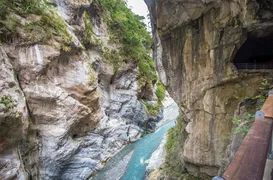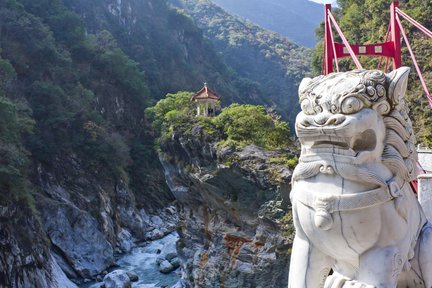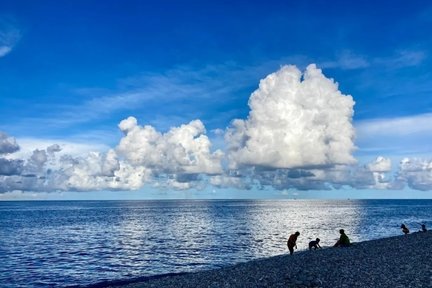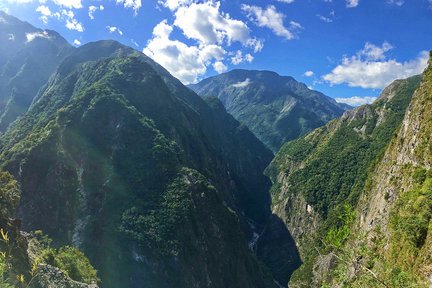Taroko National Park

The best of Taroko National Park
Bucket-list experiences
More to explore
Nearby places to go
FAQs about Taroko National Park
When is the best time to visit Taroko Gorge in Hualien?
What are the transportation options to reach Taroko Gorge?
What types of accommodation are available near Taroko Gorge?
Is Taroko Gorge safe for solo and female travelers?
What safety tips should I keep in mind while visiting Taroko Gorge?
What is the best way to explore Taroko Gorge if I don't want to drive?
What to know before visiting Taroko National Park
Remarkable Landmarks and Must-Visit Sights
Taroko Gorge Entrance Gate
The entrance gate officially marks the entrance to Taroko Gorge. Just past the gate, turn right and cross the bridge over the river to reach Shakandang Trail or the Taroko National Park Visitor’s Center. For all other sights in Taroko Gorge, keep to the left, passing through the iconic rock arch.
Shakadang Trail
Shakadang Trail, or 'Mystery Valley Trail,' is an easy trail that follows a creek with crystal clear, sapphire pools of water. This easy 4km walk takes about 2 hours return if you go the whole way. The trail passes through a Truku aboriginal village, where locals sometimes sell crafts or snacks along the trail.
Eternal Spring Shrine
A picturesque shrine dedicated to the memory of the veterans who lost their lives during the construction of the Central Cross-Island Highway. The shrine is set against a backdrop of cascading waterfalls, making it a serene and beautiful spot.
Culture and History
Taroko National Park is named after the Truku tribe, an indigenous group recognized by the Taiwanese government. The park's history dates back to its establishment as Tsugitaka-Taroko National Park by the Japanese in 1937. After World War II, the park was reestablished in 1986. The area is rich in cultural heritage, with the Truku tribe still residing in Hualien County.
Geology
Formed by the collision of the Philippine and Eurasian plates, the Central Mountain Range and the marble formations of Taroko Gorge are geological marvels. The Liwu River has carved out the gorge over millions of years, creating steep and narrow canyons that are a testament to the power of natural erosion.
Local Cuisine
While visiting Taroko Gorge, don't miss out on trying local Hualien delicacies. Popular dishes include 'mua chee' (glutinous rice balls), 'biandang' (Taiwanese lunchbox), and fresh seafood from the nearby coast. These flavors offer a unique taste of the region's culinary heritage.




